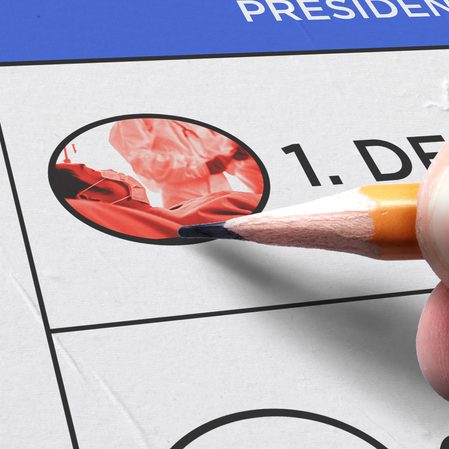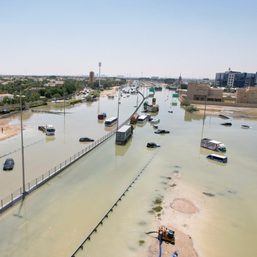SUMMARY
This is AI generated summarization, which may have errors. For context, always refer to the full article.

The Commission on Elections (Comelec) conducted a series of internet voting test runs in September, to test the possibility of adopting internet voting technology for the 2025 polls, at the earliest.
The effort comes as the pandemic makes clear its impact on Philippine electoral processes.
“You avoid a number of safety issues in this pandemic, where face-to-face interactions are actually unsafe, and we would like to minimize that,” said William Emmanuel Yu of the Parish Pastoral Council for Responsible Voting on September 15.
The technology can also be beneficial to overseas workers, particularly seafarers, struggling to visit designated polling places.
Below are the three companies that have presented their online voting technology to the Philippine poll body.
1. Voatz
Voatz is a a US-based for-profit, private mobile election voting application. It has participated in more than 76 elections across the globe, according to a website it designed for the Comelec.
“Voatz leverages the security features built into the latest versions of smartphone technology, biometrics, and the immutability of the blockchain to ensure each vote is secure,” it said.
The test run of its technology was conducted from September 11 to 13, which resulted in a voter turnout of 52.01%, or 348 individuals out of the 669 qualified overseas Filipinos.
Mock election participants were able to vote through three options: a mobile app which was available on Android and iOS, web browser, and assisted kiosks.
They submitted identification and personal information online for verification purposes, but Voatz guaranteed their data was safe.
“On the Voatz mobile apps, as soon as a participant’s identity is verified and linked to their thumbprint, FaceID, or PIN, all identifying documents are completely expunged from the system,” the company noted.
2. Smartmatic
Smartmatic, the Philippine government’s automated election software provider since 2010, was the second firm to pitch their internet voting technology to Comelec when it conducted its test run from September 18 to 20.
Its 63.6% turnout was slightly higher than Voatz’s, after 426 of 669 test voters participated.
Smartmatic made use of its platform called Trust Innovation Verifiability Integrity (TIVI), which, unlike Voatz, was only web-based, but supports laptops, desktops, tablets, and smartphones.
“We are not a mobile app-based solution, we are a browser-based solution. This is for universality. We believe this is the solution that offers the most security in your phone,” Smartmatic Asia-Pacific tech solutions manager Miguel Avila said on September 15.
Participants received two emails – the first to verify their email address, and a second one which contains their credentials. Avila said the platform may be reconfigured in the future to add other authentication requirements, like a biometrics feature.
3. Indra
The Spain-based Indra, with annual sales of €3 billion, has projects in over 140 countries. Its company Minsait is in charge of IT businesses and election-related projects.
Indra was the last firm to facilitate a mock election during the series of test runs by the poll body in September.
Its voting system was stricter because the registration period lasted five days, from September 20 to 24, and qualified voters who failed to conduct the onboarding process were unable to join the mock polls on September 25 to 27. Voatz and Smartmatic’s platforms allowed qualified overseas Filipino to register until the last minute.
To take part in the mock polls, participants were required to have access to either a computer, tablet, or phone with a camera to capture their facial image and scan their identification document. Their gadget must also have an updated browser.
Comelec officers validated the registration requests, and had the power to accept or reject them.
Participants who received an email to set up their password must not forget what they typed in because it cannot be reset or retrieved once set.
No conclusions yet
The Comelec has yet to come up with conclusions on the entire internet voting test runs, as the poll body awaits for all mock polls to be completed.
But Commissioner Rowena Guanzon said if the test runs were successful, she would urge the En Banc to request Congress to consider passing a law on the use of online voting in 2025.
“Three things that are major considerations for me: one is security, two is the access of voters, and three is the cost,” she said on September 9.
Republic Act No. 10590 or the Overseas Voting Act of 2013 allows Comelec to “explore other more efficient, reliable, and secure modes or systems, ensuring the secrecy and sanctity of the entire process, whether paper-based, electronic-based, or internet-based technology or such other latest technology available, for onsite and remote registration and elections.”
Under that law, the poll body must then submit their reports to the Joint Congressional Oversight Committee. – Rappler.com

Add a comment
How does this make you feel?






There are no comments yet. Add your comment to start the conversation.